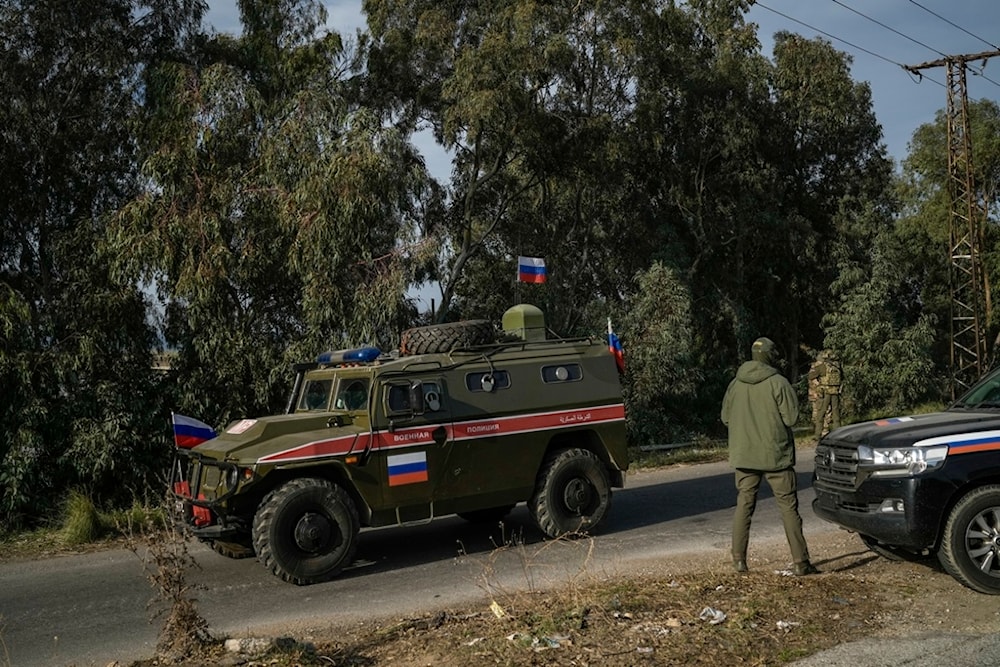Russia to likely keep reduced military presence in Syria: Bloomberg
Sources say Moscow is reportedly nearing an agreement with Syria’s new government that would allow it to retain some personnel and equipment in the country.
-

A Russian army convoy moves along a road near the Mediterranean town of Tartus, Syria, on Monday, December 16, 2024. (AP)
Russia is expected to maintain a reduced military presence in Syria, marking a key achievement for President Vladimir Putin following the collapse of the al-Assad regime he had supported, Bloomberg reported on Monday, citing sources familiar with the matter.
Moscow is reportedly nearing an agreement with Syria’s new government that would allow it to retain some personnel and equipment in the country, the sources said, requesting anonymity as they were not authorized to speak publicly.
One source indicated that Russia aims to preserve its existing naval and air bases in Syria, which it had used until now-President Ahmad al-Sharaa led an offensive that ousted Bashar al-Assad last year.
Kremlin spokesperson Dmitry Peskov did not respond to a request for comment, and officials from Syria’s transitional government were also unavailable to verify the information.
While there is no certainty that ongoing negotiations will result in a final agreement, a historic phone call last week between Putin and al-Sharaa—their first ever—suggests growing momentum and signals Moscow’s efforts to strengthen ties with Syria’s new leadership, Bloomberg indicated.
According to the sources, Russia could assist in combating ISIS terrorists active in eastern Syria. One source noted that Moscow’s continued presence might also serve as a counterbalance to Turkiye’s expanding influence in the region.
The news website highlighted that while many European officials had pushed for a full Russian withdrawal from Syria, others—particularly in southern Europe—expressed concern that losing its naval and air bases there might prompt Moscow to shift its focus toward Libya.
Russia’s two military installations in Syria have been crucial for projecting influence across both the Middle East and Africa, making their potential loss a major strategic setback for the Kremlin.
Moscow’s negotiations with al-Sharaa over retaining its Mediterranean port in Tartus and the nearby Hmeimim air base faced obstacles in January. In response, Putin indicated a willingness to support Syria’s reconstruction efforts.
During their call last week, Putin assured al-Sharaa of Russia’s readiness to provide aid and facilitate essential trade to help stabilize Syria’s devastated economy. Days later, Syria’s central bank received a fresh shipment of local currency from Russia to ease a cash shortage, according to the country’s main news agency.
Syria's new Defense Minister Major General Murhaf Abu Qasra stated in early February that Syria is open to allowing Russia to maintain its air and naval bases along the Mediterranean coast, provided that any agreement with Moscow serves Syria's national interests.
Syria remains critically underfunded for reconstruction, with its new government inheriting billions of dollars in debt to Russia and Iran, Syrian Foreign Minister Asaad al-Shibani told Financial Times in an interview last month.
Read more: Western sanctions on Syria lack logic after regime change: Bogdanov

 3 Min Read
3 Min Read










